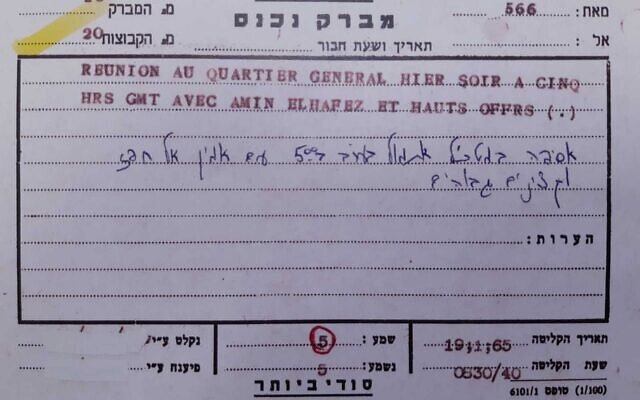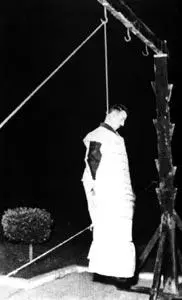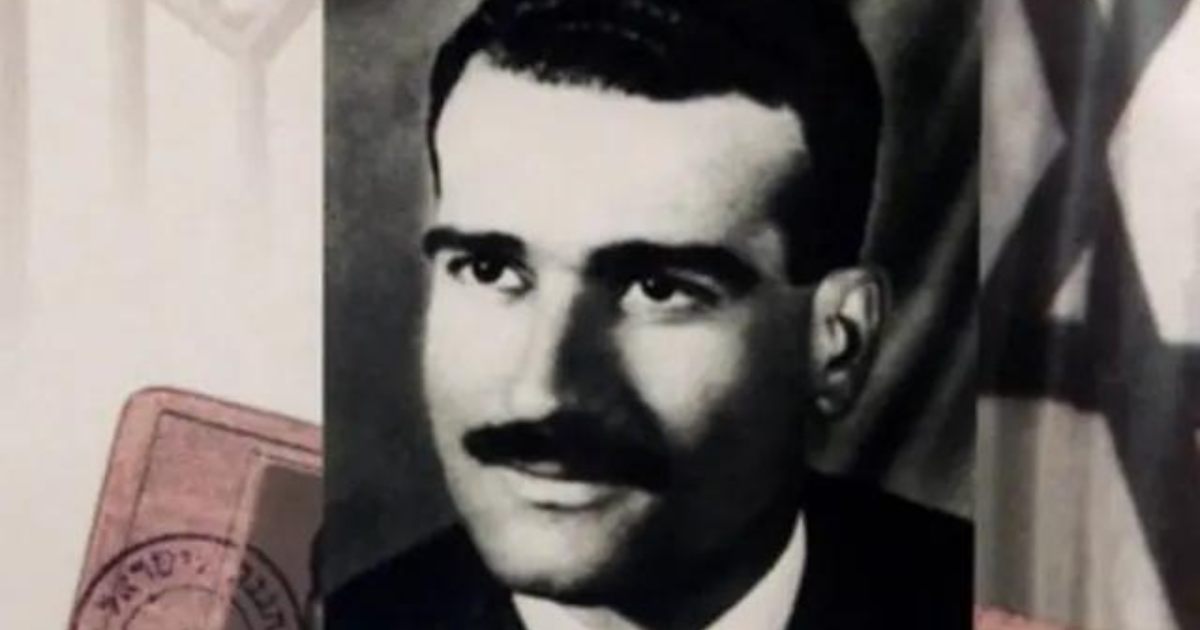Eli Cohen, a legendary figure in Israeli history, played a pivotal role in shaping the fate of the nation through his audacious espionage missions. This article explores the life and espionage endeavors of Eli Cohen, detailing his early life, background, and the significant impact he had on Israeli intelligence, particularly during his covert operations in Syria.
Early Life and Background
Eli Cohen, born in Alexandria, Egypt in 1924, was destined for a life that would ultimately shape the destiny of a nation. His heritage as an Egyptian Jew gave him a unique perspective and familiarity with Arab culture and language. The young Cohen had aspirations to become a rabbi, supported by Moise Ventura, the Chief Rabbi of Alexandria. However, life had other plans, and he pursued studies at Cairo Farouk University.
As political tides shifted in Egypt and anti-Semitic sentiments rose, Cohen’s involvement in Zionist activities became paramount. His family’s move to Israel in 1949 marked a turning point, but Eli remained in Egypt to complete his degree in electronics and coordinate Jewish and Zionist activities. The increasing hostility in Egypt made it necessary to execute covert operations, and Cohen actively participated in these efforts.
Espionage in Syria
The early 1960s saw Eli Cohen take on one of the most perilous espionage roles in history. He infiltrated Syria, posing as a wealthy businessman, and swiftly made his way into the inner circles of the Syrian elite. His undercover persona and strategic networking allowed him to gather invaluable intelligence that would later prove instrumental for Israel’s military strategies.
Impact of His Espionage
The intelligence gathered by Eli Cohen significantly benefited Israel, especially during the Six-Day War in 1967. His insights and the data he relayed played a crucial role in Israel’s strategies and overwhelming success during this pivotal event.
Stay tuned for the next sections as we delve deeper into Eli Cohen’s life, his capture, and enduring legacy.
Espionage in Syria (1961-1965)
Recruitment by Mossad
Eli Cohen’s journey into the world of espionage began when Director-General Meir Amit of Mossad stumbled upon his name while perusing the agency’s files of rejected candidates. Amit was on the hunt for an intelligence officer to infiltrate the Syrian government, and Cohen’s potential stood out. After a rigorous two-week surveillance, Cohen was deemed suitable for recruitment and subsequently underwent an intensive six-month training at the Mossad training school. His graduate report lauded him with possessing all the qualities required to become a katsa, or a field agent.
Undercover Life in Syria
Cohen’s undercover life was meticulously planned. He was given a false identity as a Syrian businessman returning from Argentina. To establish his cover, Cohen relocated to Buenos Aires in 1961. He deftly moved among the Arab community, carefully spreading the word that he had substantial amounts of money to support the Syrian Ba’ath Party. This was a time when the Ba’ath Party was illegal in Syria, yet it seized power in 1963.
Infiltration into Syrian High-Ranking Circles
In February 1962, under the alias Kamel Amin Thaabet, Cohen moved to Damascus. Mossad had carefully strategized the tactics he was to employ in building relationships with high-ranking Syrian politicians, military officials, influential public figures, and the diplomatic community. Cohen continued his social life, spending time in cafes, listening to political gossip, and holding parties at his home for high-placed Syrian ministers, businessmen, and others. He used these gatherings to discreetly gather information, often feigning inebriation to encourage loose talk about their work and army plans.
Intelligence Gathering
Methods Used for Collecting Intelligence
During his mission, Eli Cohen provided an extensive range of intelligence data for the Israeli Army between 1961 and 1965. He employed various methods to relay this information back to Israel, including radio transmissions, secret letters, and occasional in-person deliveries during his secret travels to Israel.
Key Accomplishments
Cohen’s intelligence-gathering efforts were nothing short of remarkable. One of his most famous achievements was the tour of the Golan Heights, during which he gathered critical intelligence on Syrian fortifications. He was also instrumental in uncovering a secret Syrian plan to divert the Jordan River headwaters to deprive Israel of water resources. Additionally, his intelligence gathering was vital in providing insights into Syrian fortifications on the Golan Heights, which greatly aided Israel’s success in the Six-Day War.
The Infamous Tree Strategy
An infamous strategy employed by Cohen was using trees as targeting markers during the Six-Day War. He feigned sympathy for the soldiers exposed to the sun and had trees planted at every position, strategically placed to provide shade. The Israel Defense Forces allegedly utilized these trees as targeting markers during the war, significantly aiding their operations and leading to the capture of the Golan Heights in just two days.
Capture and Execution
Uncovered in Syria
Eli Cohen’s life as a spy in Syria took a perilous turn in early 1965. Syrian authorities, with the assistance of Soviet-made tracking equipment and expertise from Soviet experts, intensified their efforts to identify and apprehend a high-level spy operating within their ranks. Employing a period of radio silence, they aimed to detect any illegal transmissions that could betray the infiltrator. Their efforts proved fruitful as they successfully triangulated the transmitter.
On January 24, 1965, Syrian security forces, led by Colonel Ahmed Suidani, broke into Cohen’s apartment. In the very act of transmitting sensitive information to Israel, Cohen was captured.

Conviction and Death Sentence
Following his capture, Eli Cohen faced a grim fate. He was subjected to intense interrogation and torture. The Syrian authorities swiftly convicted Cohen of espionage through a military tribunal, and he was subsequently sentenced to death under martial law.
Despite international pleas and efforts, including interventions from diplomats, prime ministers, parliamentarians, and religious figures, the Syrian government remained resolute in carrying out the death sentence.
In May 1965, Cohen was publicly hanged in Marjeh Square in Damascus, marking a tragic end to his extraordinary life as a spy.

Legacy
Impact on Israeli Strategy
Eli Cohen’s intelligence-gathering efforts were nothing short of transformative for the Israeli military and the nation as a whole. His intricate network and invaluable information significantly influenced Israel’s success during the Six-Day War in 1967. His deep infiltration into the Syrian political and military echelons allowed Israel to anticipate and effectively counter Syrian plans. Notably, his extensive intelligence on the Golan Heights’ fortifications and the Syrians’ diversion scheme played pivotal roles in Israel’s strategic initiatives during the war. Cohen’s work went beyond this specific conflict, setting a standard for Israeli intelligence operations and shaping the nation’s approach to national security.
Long-lasting Influence on Israel’s Approach to Intelligence Gathering
Eli Cohen’s legacy extends beyond his heroism and into the very fabric of Israeli intelligence methodology. The daring and innovative strategies he employed showcased the importance of proactive, deep undercover work. His ability to assimilate seamlessly into the society he infiltrated emphasized the power of cultural understanding and integration in intelligence operations. Cohen’s story became a cornerstone for Mossad’s training and operations, underlining the potential impact of a well-placed, deeply embedded agent. His life serves as a guiding beacon for aspiring intelligence officers and remains a testament to the lengths individuals will go to for the sake of their nation’s security.
Public Reception and Memorials
Eli Cohen is celebrated as a national hero in Israel. His sacrifice and dedication to the country have earned him a permanent place in the hearts of the Israeli people. Numerous streets, neighborhoods, and settlements across Israel have been named in his honor, ensuring that his memory lives on and continues to inspire generations.
Media Depictions
Eli Cohen’s life and espionage operations have inspired various forms of media, reflecting the enduring fascination with his story. One of the most notable portrayals is in the 2019 Netflix miniseries, “The Spy,” where actor Sacha Baron Cohen masterfully brings Cohen’s story to life. The series provides a dramatic account of his undercover operations, shedding light on the dangers and complexities of espionage. The existence of such media not only immortalizes Cohen’s memory but also educates the public on the challenges and sacrifices faced by individuals like him in the line of duty.
Mossad’s Last Message
In a revelation by Mossad Chief David Barnea, a glimpse into Eli Cohen’s final moments and the perilous nature of his mission is provided. On the day of his capture, Cohen sent a message encapsulating the essence of his commitment and the immense risks he faced. While the specifics of this message remain classified, it serves as a haunting reminder of the dangers inherent in espionage, especially when one operates deep undercover in enemy territory. This final message underscores Cohen’s unwavering dedication to his mission and his nation, even in the face of imminent danger and capture.
The Heroic Odyssey of Eli Cohen
Eli Cohen’s life, from his humble beginnings in Alexandria, Egypt, to his pivotal role as an undercover spy in Syria, is a testament to human courage, sacrifice, and love for one’s country. Cohen’s journey, marked by audacity and unwavering determination, showcases the extraordinary lengths to which an individual can go to serve a higher purpose.
A Lasting Legacy
His legacy echoes through the halls of Israeli history and beyond. Eli Cohen’s infiltration and intelligence gathering in Syria reshaped the geopolitical landscape of the Middle East. The impact of his actions during the Six-Day War remains a cornerstone of modern Israeli military strategy. His work was not only a triumph for Israel but also set new standards in the realm of international espionage.
Forever Remembered
In Israel, Eli Cohen is forever etched into the collective memory as a national hero. The streets and settlements that bear his name serve as a reminder of his sacrifice and dedication. The Netflix series “The Spy” and other media portrayals ensure that his story is not lost to the sands of time. Eli Cohen will forever stand as a beacon of valor and patriotism, inspiring generations to come.
Eli Cohen’s story reminds us that even in the face of overwhelming odds, individuals driven by unwavering determination can make an indelible mark on history. His life serves as a profound example of the heights of heroism one can achieve when fueled by a deep love for their homeland.






